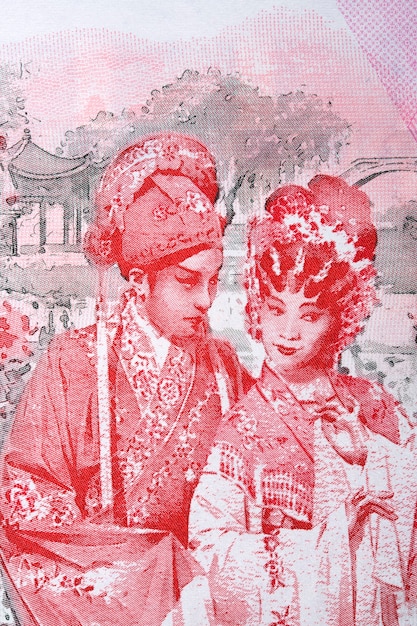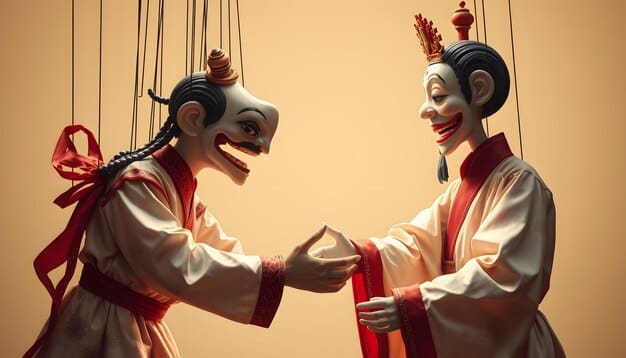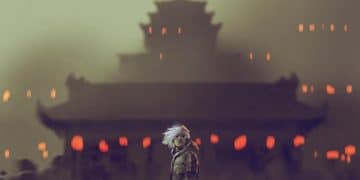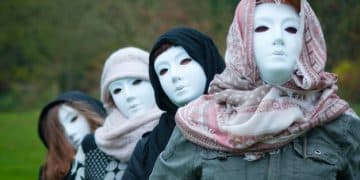The Impact of Censorship on Chinese Drama Storytelling: What You Need to Know

Advertisements
The impact of censorship on Chinese drama storytelling is significant, influencing narrative themes, character development, and overall creative expression, often resulting in content that adheres to government guidelines while navigating complex social and political issues.
Exploring the impact of censorship on Chinese drama storytelling reveals a complex interplay between creative expression and governmental regulations, shaping the narratives and themes that reach global audiences.
Anúncios
Understanding Censorship in Chinese Drama: An Overview
Censorship plays a pivotal role in shaping the landscape of Chinese dramas. It affects everything from plotlines to character portrayals, influencing how stories are told and received by both domestic and international audiences.
Understanding the mechanisms and motivations behind this censorship is crucial for appreciating the nuances of Chinese drama.
Anúncios
The Historical Context of Censorship
Censorship in China has deep historical roots, evolving through different political eras. Originally focused on maintaining social order and moral standards, it has adapted to address modern ideological concerns.
The Goals of Censorship in Entertainment
The primary goals of censorship include promoting social harmony, upholding socialist values, and preventing the dissemination of content deemed politically sensitive or morally objectionable.

These objectives often lead to significant alterations in storytelling.
- Maintaining Ideological Purity: Ensuring content aligns with the Communist Party’s ideology.
- Promoting Social Harmony: Avoiding themes that could incite social unrest or disharmony.
- Upholding Moral Standards: Filtering out content considered obscene, violent, or morally corrupting.
- Protecting National Image: Presenting a positive and unified image of China to the world.
In summary, understanding the role of censorship in Chinese dramas requires awareness of its historical context and the specific goals it aims to achieve.
How Censorship Affects Narrative Themes
Censorship profoundly impacts the narrative themes explored in Chinese dramas. Certain topics are routinely avoided, while others are carefully handled to align with official guidelines.
This often results in creative compromises and subtle storytelling techniques.
Commonly Censored Themes
Themes like political dissent, explicit portrayals of corruption, and sensitive historical events are frequently censored or heavily restricted. Dramas touching on these subjects often face delays, revisions, or outright bans.
The Use of Allegory and Subtext
To circumvent censorship, writers often employ allegory and subtext. By embedding sensitive themes within seemingly innocuous narratives, they can convey deeper meanings while adhering to regulatory requirements.

Allegory can include:
- Historical Dramas as Metaphors: Using historical events to comment on contemporary issues.
- Symbolic Characters: Creating characters whose actions and traits represent broader societal concerns.
- Subtle Dialogue: Embedding veiled criticisms or commentaries within everyday conversations.
In essence, censorship encourages creativity, compelling storytellers to find innovative ways to communicate complex ideas.
Impact on Character Development
Character development in Chinese dramas is also heavily influenced by censorship. Protagonists must often embody socially acceptable virtues, and any deviation from these norms is carefully managed.
This impacts the depth and realism of character portrayals.
The Idealized Protagonist
Protagonists are generally portrayed as morally upright, patriotic, and dedicated to the collective good. Flaws and complexities are often minimized to present a positive role model.
Restrictions on Villain Portrayals
Villains, too, are subject to censorship. Their motives and actions must align with permissible narratives, avoiding any suggestion that corruption or injustice is widespread within the system.
Therefore, character development involves a careful balancing act:
- Moral Alignment: Ensuring characters’ actions reflect positively on societal values.
- Balanced Complexity: Navigating the fine line between creating relatable characters and adhering to censorship rules.
- Narrative Justification: Providing clear reasons for characters’ choices and behaviors.
In conclusion, censorship shapes character development by emphasizing idealized traits and carefully managing any deviations from socially accepted norms.
The Role of Production Companies and Studios
Production companies and studios play a crucial role in navigating the complexities of censorship. They must balance creative ambitions with regulatory compliance to ensure their projects are approved.
This often involves significant negotiation and compromise.
Negotiating with Censors
Producers frequently engage in negotiations with censorship boards, seeking feedback and making revisions to meet regulatory standards. This process can be lengthy and demanding.
Preemptive Self-Censorship
Many production companies practice preemptive self-censorship, avoiding potentially problematic themes and content to minimize the risk of rejection. This can stifle creativity but ensures smoother production cycles.
Several factors impact the studio’s approach:
- Industry Reputation: Maintaining a reputation for compliance to secure future project approvals.
- Risk Assessment: Evaluating the potential impact of censorship on a project’s success.
- Creative Vision: Balancing artistic goals with regulatory constraints.
In summary, production companies and studios serve as vital intermediaries between creative teams and censorship authorities, shaping the content of Chinese dramas.
Audience Reception and Global Impact
Audience reception to Chinese dramas is influenced by the constraints of censorship. While domestic viewers may be accustomed to certain limitations, international audiences often have different expectations.
This impacts global appeal and cultural exchange.
Domestic vs. International Viewers
Domestic viewers may appreciate dramas that subtly challenge or subvert censorship, while international audiences may find the sanitized narratives less engaging. This discrepancy can affect a drama’s overall success.
The Global Appeal of Chinese Dramas
Despite censorship, Chinese dramas have gained a significant global following, particularly in Asia. Their unique cultural perspectives and compelling storylines resonate with diverse audiences.
Factors affecting international success include:
- Cultural Authenticity: Retaining elements of Chinese culture that appeal to international viewers.
- Universal Themes: Exploring themes of love, family, and identity that transcend cultural boundaries.
- Production Quality: Maintaining high standards of filmmaking and acting.
Overall, despite the challenges posed by censorship, Chinese dramas continue to make a significant impact on global audiences.
Examples of Censorship in Popular Dramas
Several popular Chinese dramas illustrate the practical effects of censorship. These examples reveal how specific themes and storylines are modified to comply with regulatory requirements.
Examining these cases provides valuable insights into the real-world impact of censorship.
Case Study 1: Historical Dramas
Historical dramas often undergo extensive revisions to ensure they align with officially approved narratives. Sensitive historical events or figures may be omitted or reinterpreted to avoid controversy.
Case Study 2: Modern Romance Dramas
Modern romance dramas may face censorship for portraying overly explicit content or promoting lifestyles deemed incompatible with socialist values. Subtlety and implication become key in navigating these restrictions.
- Omission of Politically Sensitive Content: Removing any scenes or dialogue that could be construed as critical of the government.
- Moral Messaging: Ensuring that characters’ actions and choices reflect positive values.
- Balancing Creativity and Compliance: Finding ways to tell compelling stories within the boundaries of censorship.
In essence, these case studies highlight the pervasive influence of censorship on Chinese drama storytelling.
| Key Point | Brief Description |
|---|---|
| 🎬 Narrative Themes | Censorship impacts which themes can be explored. |
| 🎭 Character Development | Protagonists often idealized, villains’ motives restricted. |
| 🏢 Production Companies | Studios negotiate, self-censor to comply with regulations. |
| 🌍 Global Impact | Censorship affects drama’s appeal to international audiences. |
FAQ
▼
The main goal is to ensure content aligns with socialist values, promotes social harmony, and avoids politically sensitive themes, thereby maintaining ideological control and public order.
▼
Writers often use allegory and subtext to embed sensitive themes within seemingly innocuous narratives, allowing them to convey deeper meanings while adhering to regulatory requirements and guidelines.
▼
Protagonists are generally portrayed as morally upright, patriotic, and dedicated to the collective good. Their complexity is minimised to present positive role models, following social norms.
▼
Production companies negotiate with censorship boards to understand requirements and to make revisions that ensure projects are approved to avoid delays or bans, balancing ambition and compliance.
▼
Despite censorship, Chinese dramas have achieved a global following, particularly in Asia, due to their unique cultural perspectives and compelling storylines. However, sanitized narratives may affect some viewers.
Conclusion
In conclusion, the impact of censorship on Chinese drama storytelling is multifaceted, influencing narrative themes, character development, and production processes. While it poses challenges to creative expression, it also fosters innovation and subtlety in storytelling, shaping the unique landscape of Chinese dramas that continue to captivate audiences worldwide.





